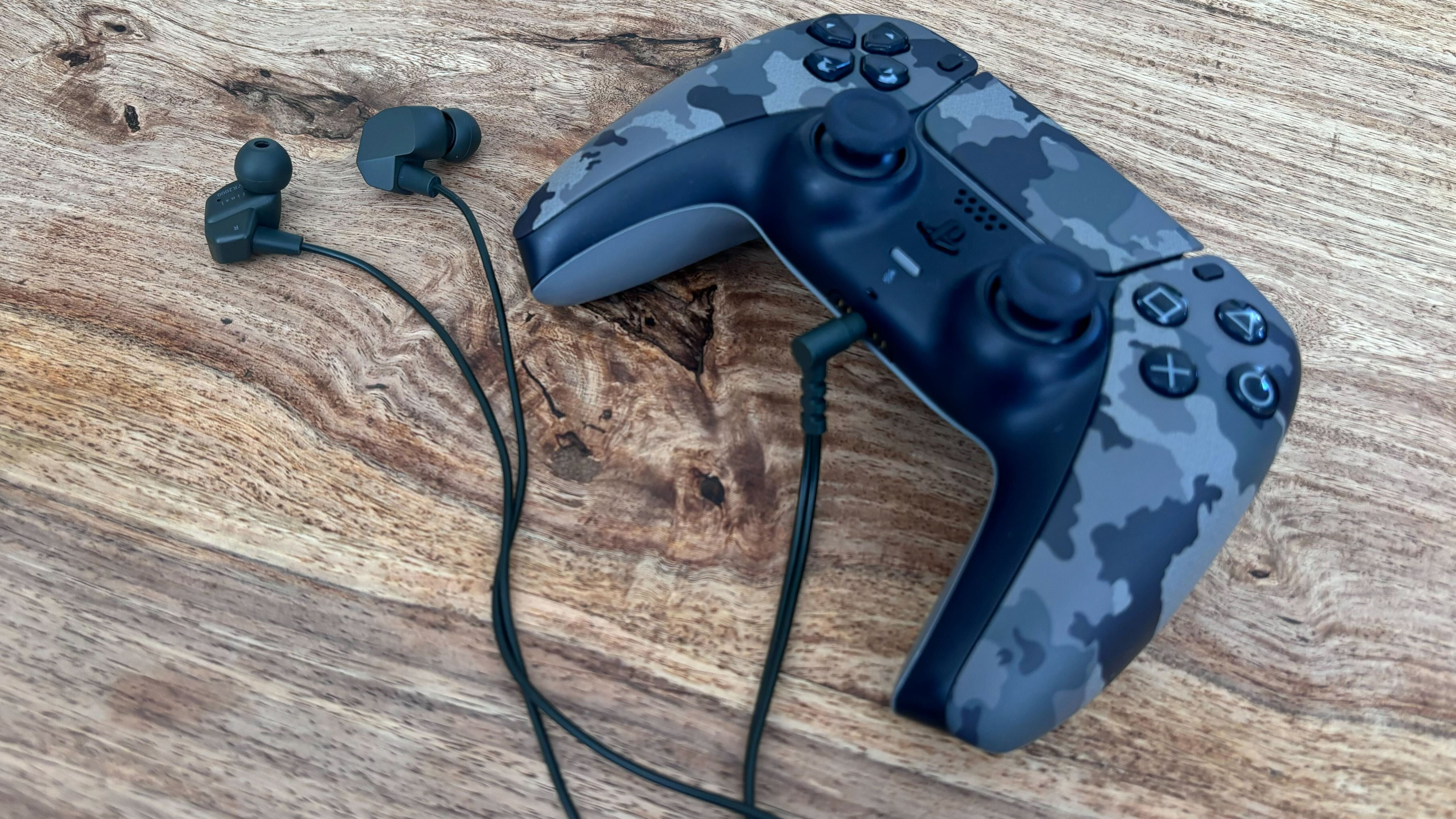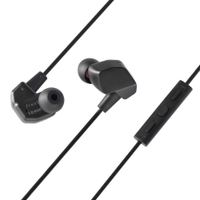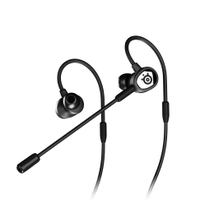TechRadar Verdict
The Final VR2000 earbuds are easy to recommend if you’re searching for an in-ear audio option specifically for competitive FPS gaming. They boast the same immersive soundstage as the pricier VR3000 but with specialist tuning that is absolutely perfect for shooters.
Pros
- +
Strong, immersive soundstage
- +
Crisp, high quality audio
- +
Superb comfort and design
- +
Generous selection of ear tips
- +
Specifically tuned for competitive games
Cons
- -
Same average mic
- -
A poor fit for other genres
Why you can trust TechRadar
Final VR2000: Two-minute review
If all you’re after is a pair of gaming earbuds to use while playing online first-person shooter (FPS) titles like Counter-Strike 2 or Call of Duty: Modern Warfare 3, then don’t hesitate to buy the Final VR2000. The boutique Japanese audio brand has crafted a formidable pair of gaming headphones, which offer the same excellent design and features of the Final VR3000 but with an audio profile that has been specifically tuned for competitive play.
Designed for enhanced binaural audio, they offer an impressively immersive and detailed soundstage that gives every vital audio cue a clear sense of direction. Everything from distant gunfire to nearby footsteps comes through in vivid detail, giving you a clear edge over your opponents. They’re also lightweight, as comfortable to wear as many of the best gaming earbuds, fully compatible with PC in addition to every major console plus mobile, and come with five pairs of ear tips and removable ear hooks to help ensure the perfect fit.
That said, the middling microphone of the Final VR3000 is still very much present here. Your in-game comms will be perfectly serviceable, but using them in conjunction with a standalone microphone is definitely the way to go for frequent chatters. There’s also the matter of the audio tuning, which lacks bass and leads to a slightly tinny overall sound. This is ideal for hectic shooters, where you don’t want to become overwhelmed by loud gunfire and explosion effects, but makes them a poor fit for more cinematic single-player titles and music.
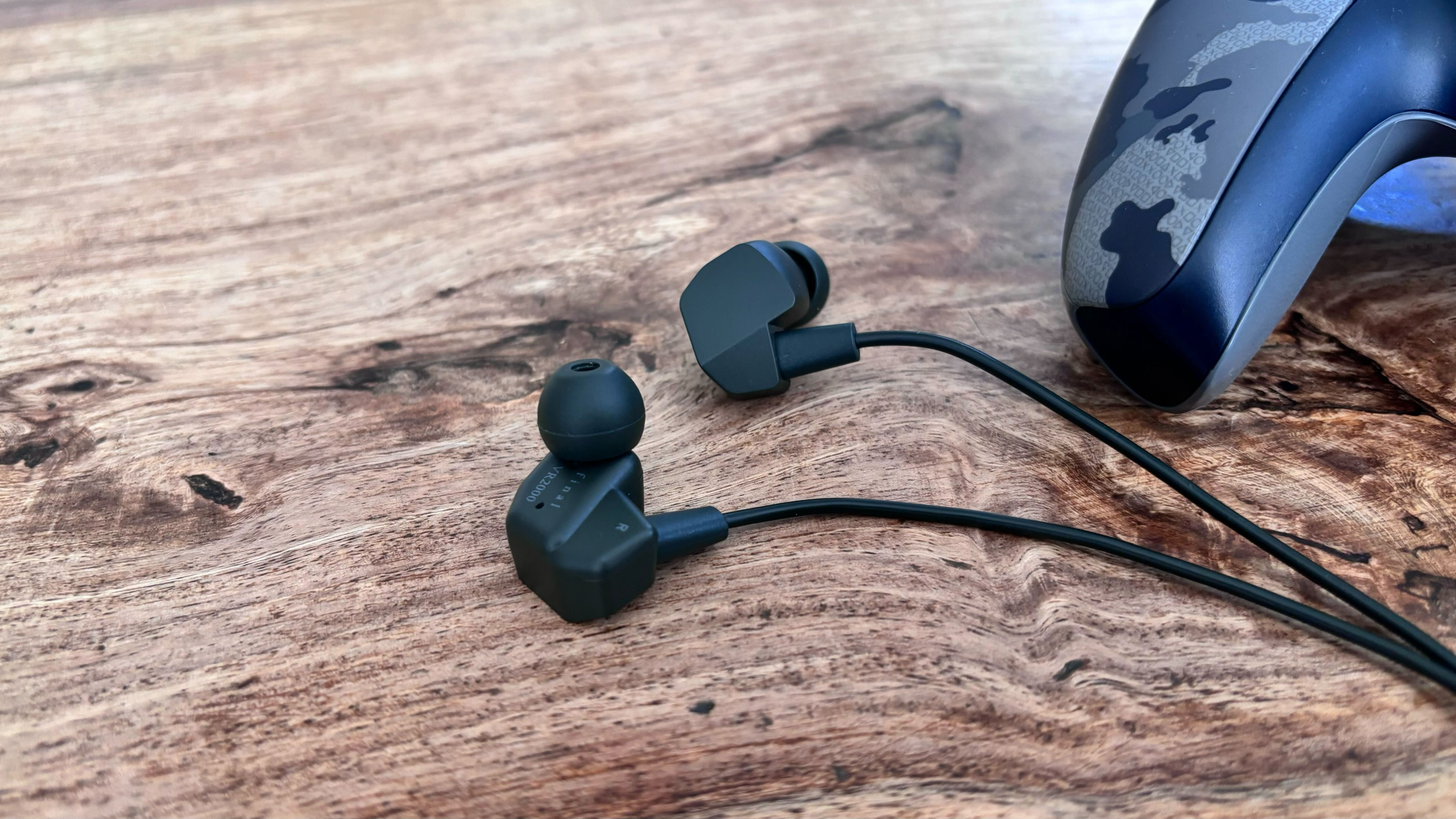
Final VR2000: Price and availability
- $69.99 / £59.99 / around AU$115
- Available via Amazon
- Cheaper than the Final VR3000
The Final VR2000 earbuds come in at $69.99 / £59.99 / around AU$115 and are readily available at Amazon in the US and UK. This is $10 / £10 / around AU$5 less than the Final VR3000. While those headphones are definitely a better fit for a more general audience, this small saving makes the Final VR2000 the clear choice if you intend to play lots of FPS games. They are also cheaper than many of the best wired gaming headsets, making them a strong alternative if you want to keep costs down.
Final VR2000: Specs
| Price | $69.99 / £59.99 / around AU$115 |
| Weight | 0.7oz / 20g |
| Compatibility | PlayStation 5, PlayStation 4, Nintendo Switch, Meta Quest, Xbox Series X, Xbox Series S, Xbox One, PC, mobile |
| Connection type | Wired (3.5mm) |
| Battery life | N/A |
| Features | Audio controller with in-line microphone |
| Software | N/A |
Final VR2000: Design and features
The most visible difference between the Final VR2000 and the Final VR3000 is that this pair comes in a dark green color rather than plain black. This is a clear nod to their intended audience, embracing the military aesthetic in an understated and classy way. Everything else about the earbuds is practically identical, meaning that they still have an angular shape which fits very well in the ear.
They are likewise worn with the cable pointed upwards and hooked around the top of each for additional support, like a pair of in-ear-monitor (IEM) headphones. Both of these factors keep them feeling secure and comfortable, even over lengthy sessions which is definitely a plus on the occasion that a particularly grueling match drags on into overtime.
Materials feel high-quality across the board and the same five alternate ear tips are also included with the Final VR2000 too, on top of a small carrying pouch and removable ear hooks. The ear tips are color-coded and, again, provide a brilliant fit once you work out the correct size for you. Because of this, you likely won’t need to use the included ear hooks at all, which is a good thing as they remain as fragile and fiddly to install as ever.
The only other notable element of the Final VR2000 are the audio controls present on the cable of the right earbud. They’re pleasantly clicky and offer a volume up, volume down, and pause button - though unfortunately these don’t work outside of mobile platforms.
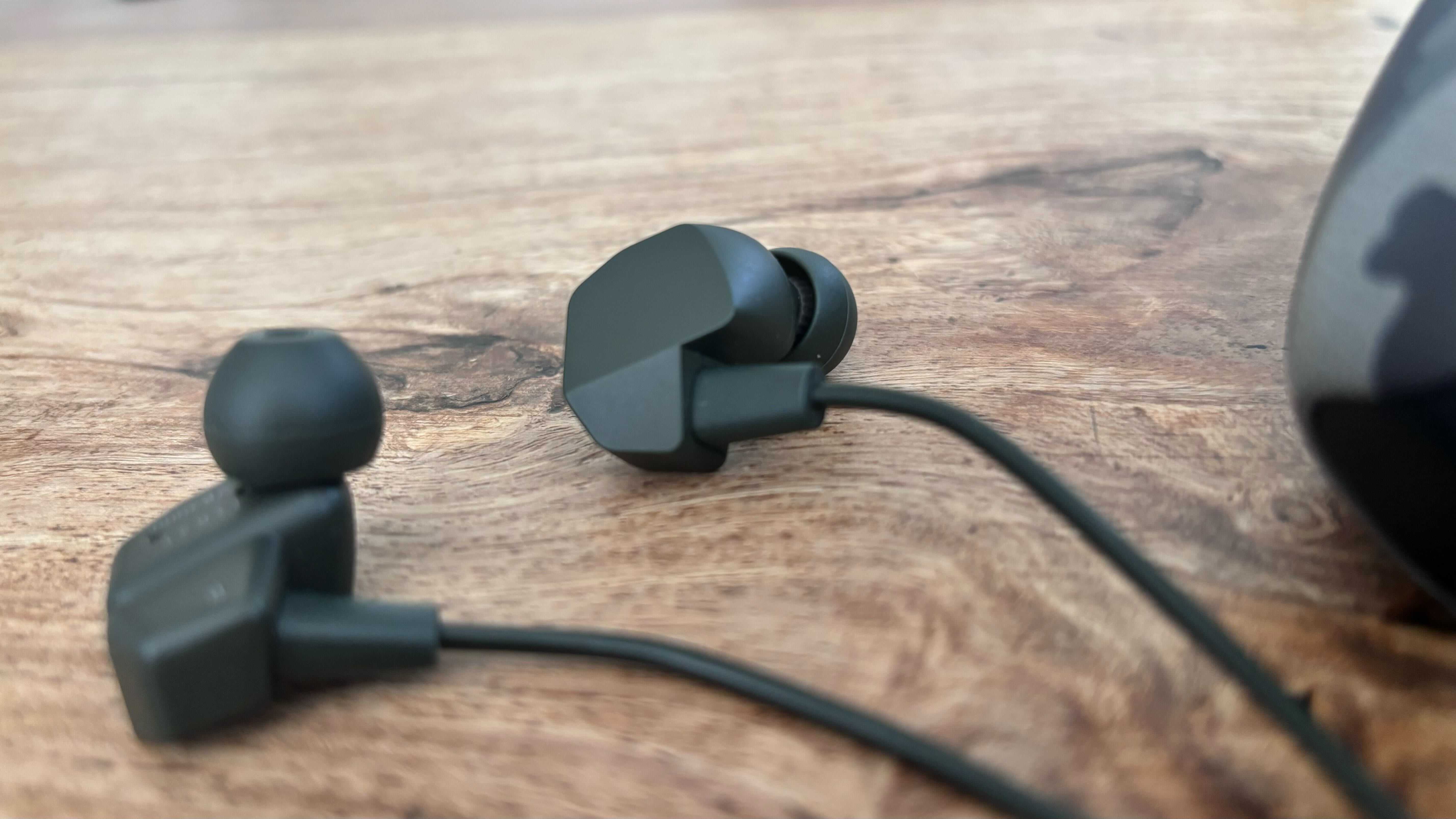
Final VR2000: Performance
The Final VR2000 perform excellently in any of the best FPS games. They offer fantastic binaural sound, lending everything an impressive sense of direction. This is especially useful in competitive scenarios, where being able to identify the origin of a footstep or other audio cues can make a difference between a win or a loss. As wired earbuds, you also don’t need to worry about any possibility of latency or delay.
When it comes to their overall tuning, the bass has been noticeably decreased compared to the much heavier sound of the Final VR3000. Crystal clear mids mean that spoken dialogue comes through clearly but music still sounds flat and pretty lifeless on the whole. This is not necessarily a bad thing though, as these headphones are clearly not intended for single-player cinematic titles or more general music listening. In a hectic FPS, the lack of bass prevents loud effects like gunfire or explosions from becoming too overwhelming and makes it much easier to focus on more important sounds like the aforementioned footsteps or communications from your teammates.
The biggest disappointment here is the in-line microphone, which is far from one of the best microphones and decidedly average at best. It sounds quite muffled and does a very poor job of blocking out background noise, which might be a dealbreaker if you intend to use these headphones as your primary mode of communication in a loud environment. It’s a real shame, especially given the fact that many cheaper earbuds aimed towards FPS gamers offer substantially better microphones.
Should I buy the Final VR2000?
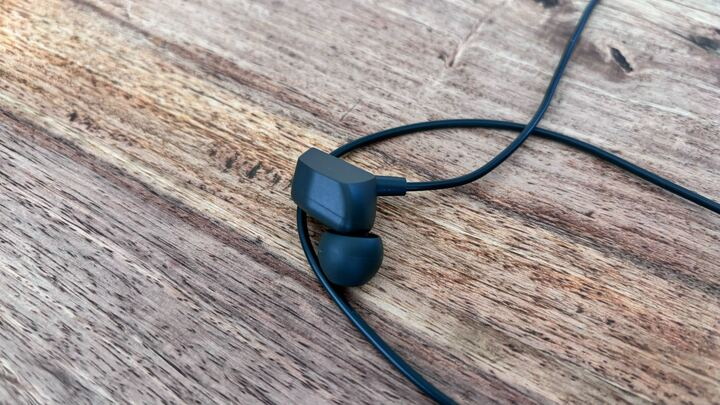
Buy it if...
You play lots of online FPS games
If you’re after a pair of earbuds to use in competitive FPS games, then you will struggle to find options that are better suited to that purpose than the Final VR2000.
You value a comfortable design
These are some seriously comfortable earbuds and come packed with everything that you need to find the perfect fit. Pick them up if you’re after a pair that can be worn for hours at a time.
Don't buy it if...
You don’t own a separate mic
With a focus on FPS gaming like this, it’s a shame that the microphone of the Final VR2000 is so mediocre. Look at other options if you don’t already own a separate mic.
Also consider...
Still not keen on the Final VR2000? Here are two other wired options to consider.
| Row 0 - Cell 0 | Final VR2000 | Final VR3000 | SteelSeries Tusq |
| Price | $69.99 / £59.99 / around AU$115 | $79.99 / £69.99 / around AU$120 | $39.99 / £44.99 / around AU$74.99 |
| Weight | 0.7oz / 20g | 0.7oz / 20g | 0.7oz / 20g |
| Compatibility | PlayStation 5, PlayStation 4, Nintendo Switch, Meta Quest, Xbox Series X, Xbox Series S, Xbox One, PC, mobile | PlayStation 5, PlayStation 4, Nintendo Switch, Meta Quest, Xbox Series X, Xbox Series S, Xbox One, PC, mobile | PlayStation 5, PlayStation 4, Nintendo Switch, Meta Quest, Xbox Series X, Xbox Series S, Xbox One, PC, mobile |
| Connection type | Wired (3.5mm) | Wired (3.5mm) | Wired (3.5mm) |
| Battery life | N/A | N/A | N/A |
| Features | Audio controller with in-line microphone | Audio controller with in-line microphone | Detachable boom microphone, in-built microphone, |
| Software | N/A | N/A | N/A |
Final VR3000
This slightly more expensive pair also from Final are much better suited to general gaming. They offer the same immersive sound, but with much richer bass that’s perfect for single-player adventures.
For more information, check out our full Final VR3000 review
SteelSeries Tusq
The SteelSeries Tusq underwhelm when it comes to overall build quality, but come in much cheaper than the Final VR2000 and offer a far better mic to boot.
For more information, check out our full SteelSeries Tusq review.
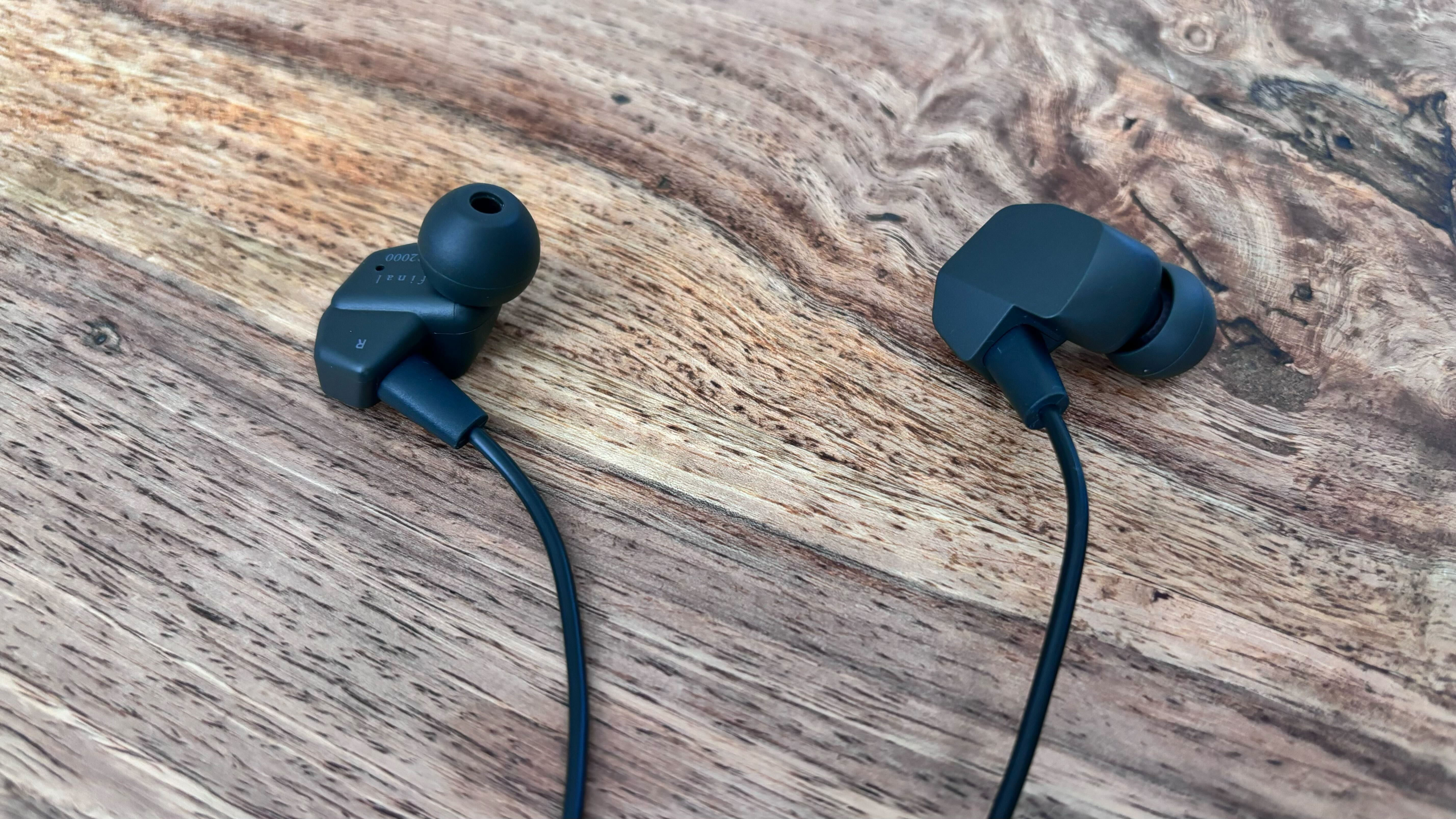
How I tested the Final VR2000
- Used for over two weeks
- Tested with PC, PS5, and Xbox Series S
- Compared to other gaming earbuds
I tested the Final VR2000 for just over two weeks. During that time I played a wide range of FPS games, including Counter-Strike 2, Team Fortress 2, Call of Duty: Modern Warfare 3, Call of Duty: Advanced Warfare, and Call of Duty: Vanguard. I predominantly played using a PC and PlayStation 5, though I also tested the headphones with an Xbox Series S over a few rounds of Fortnite.
I endeavored to try the headphones with a range of other genres, too, in order to assess their performance. This involved continuing my ongoing playthrough of Rise of the Ronin, in addition to some hours in The Last of Us Part 2 Remastered and The Sims 4.
Throughout my time with the earbuds, I compared my experience to my hands-on testing of other models including the Final VR3000, Final VR500, Turtle Beach Battle Buds, SteelSeries Tusq, and more, finding them to be a capable FPS-oriented alternative.
First reviewed July 2024

Dash is a technology journalist who covers gaming hardware at TechRadar. Before joining the TechRadar team, he was writing gaming articles for some of the UK's biggest magazines including PLAY, Edge, PC Gamer, and SFX. Now, when he's not getting his greasy little mitts on the newest hardware or gaming gadget, he can be found listening to J-pop or feverishly devouring the latest Nintendo Switch otome.
